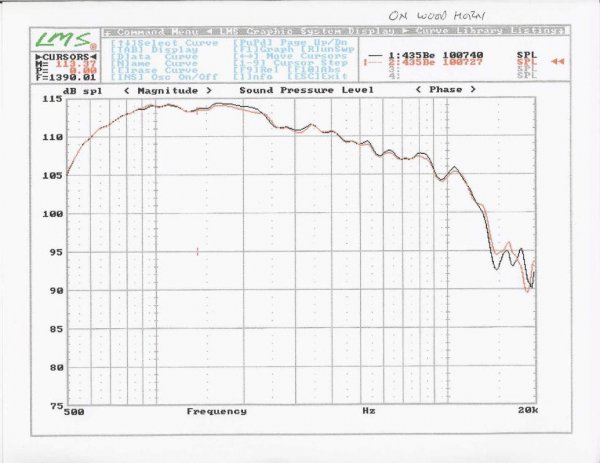First, no we can't agree. It is far from a fact that we currently have all the measurements necessary to describe how we perceive sound and music or measure equipment. If you don't think so, look at the evolving work of the one Keith O. Johnson, who is far from happy with the current set of measurments used to evaluate audio gear.
Two, have you or haven't you read the book This is Our Brain on Music by Daniel Levitan? In fact, I feel this book is a MUST READ for any audiophile and engineer! Levitan, who is a musician, producer and neurophysiologist, has done new studies that disprove many accepted facts about how our brain perceives music, interprets it and processes it.
Third, you are really not understanding the concept of complex biological/systems or unpredictable synergies. These synergies are not in the equipment but in the sound and its perception. Nothing happens as they say in a vacuum. Take drugs for instance. There is no drug that specifically inhibits DNA synthesis. The drug always has a multitude of effects on other systems including RNA and protein synthesis and other cellular pathways too.
This is from the book Neurophysiological Basis of Movement by the Dr. Mark Latash, an outstanding neuroscientist from Russia who is now a Professor at PSU. From Chapter 1 of his book:
1. Function of a neural structure can be derived from properties of its elements (neural cells or neurons) and their connections. So, when researchers accumulate enough information about the structure of the central nervous system (the brain and the spinal cord), its function will become obvious. This approach is commonly called reductionism because it attempts to "reduce" the function of a complex system [my note: and certainly our hearing mechanism and audio system fit that bill] to the properties of its elements. Sometimes another fancy expression is used with respect to this approach: ascending determinism.
2. Function of a complex system cannot be understood on the basis of its structure and the properties of its elements. Understanding a complex system requires a special set of notions that cannot be derived from simply looking at the elements and their connections. So no matter how much information a scientist obtains about the elements of a complex system, he or she will not understand its function without forgetting about the elements, at least temporarily, and looking at the system as a whole. This approach is called the "complex system approach" and my heart belongs to it.
If one accepts the idea that complex systems should be studied in a different way than by accumulating information about their elements, first it is necessary to realize the general properties of a complex system and to introduce an appropriate, meaningful language (set of notions). Note that systems of seemingly different complexity may be described with the same sets of notions. For example, our planetary system consists of zillions of atoms. However, the Bohr planetary model for just one atom is qualitatively rather similar to the solar planetary system. Behavior of a motionless heavy rock may be much more simple and predictable than the behavior of an electron on one of the atomic orbits within the rock. This means that a complex system does not necessarily imply a complicated description of its behavior (emphasis author). Most of the objects surrounding us can be described with fewer parameters and simpler laws than an atomic nucleus. This simplicity of its description is in fact the most important advantage of the complex system approach (author emphasis).
So when I'm talking about unpredictable synergies, I'm referring to the reductionist approach where everything is broken down to its basic elements eg say like in the human genome project where the goal was mapping every gene in our DNA and then ID'ng their function would explain everything we needed to know about all disease. But again, this approach ignores that all these genes can interact to produce other unpredictable results.











